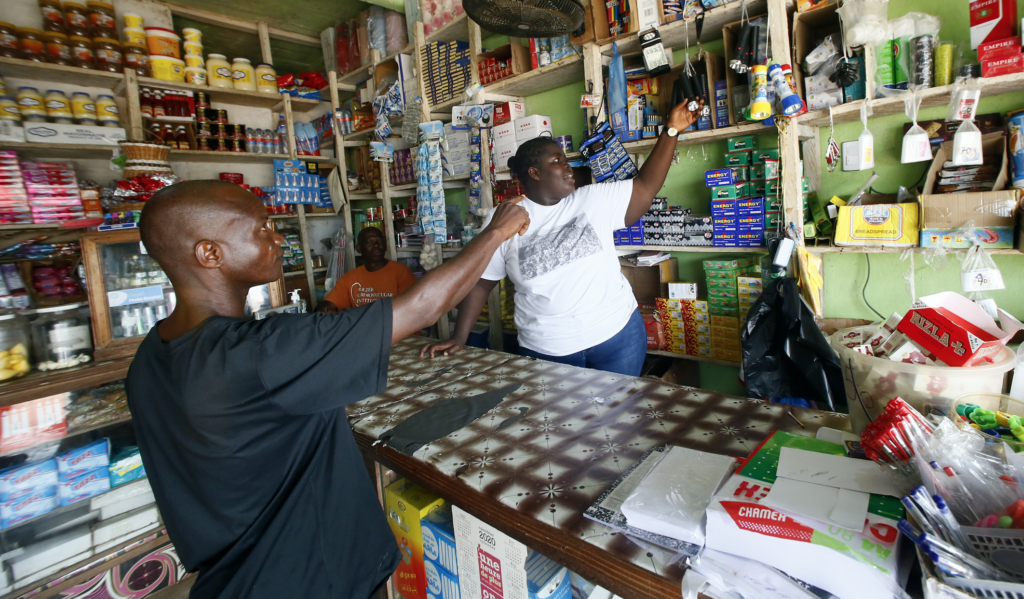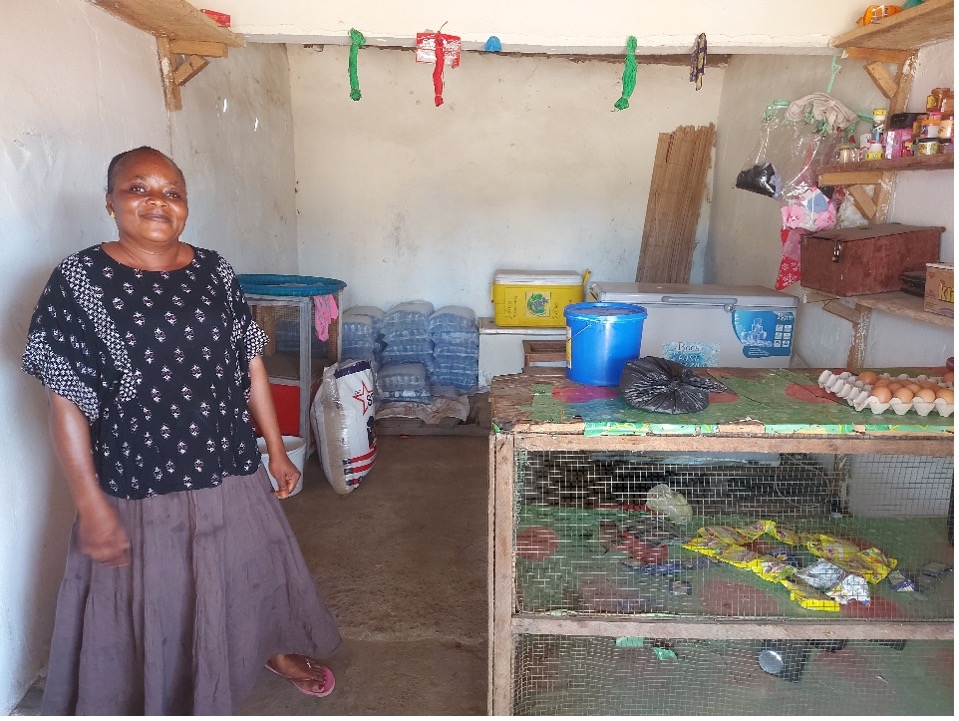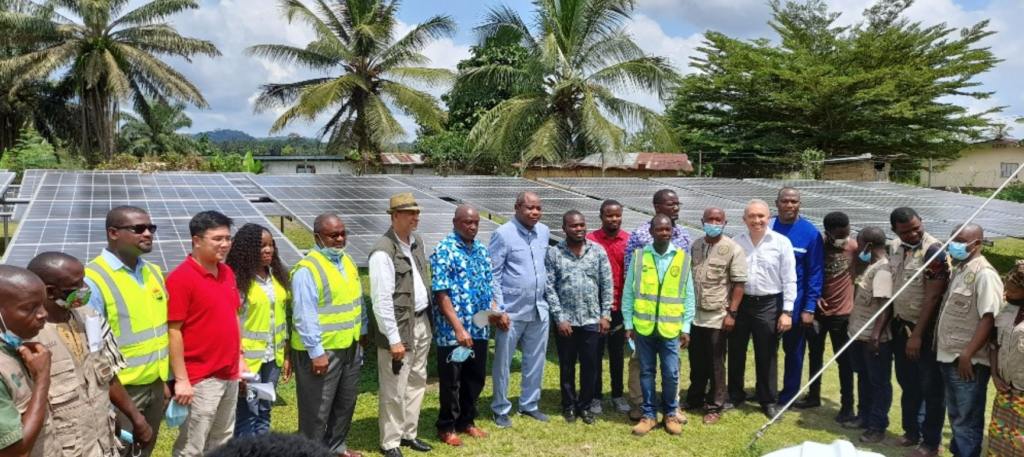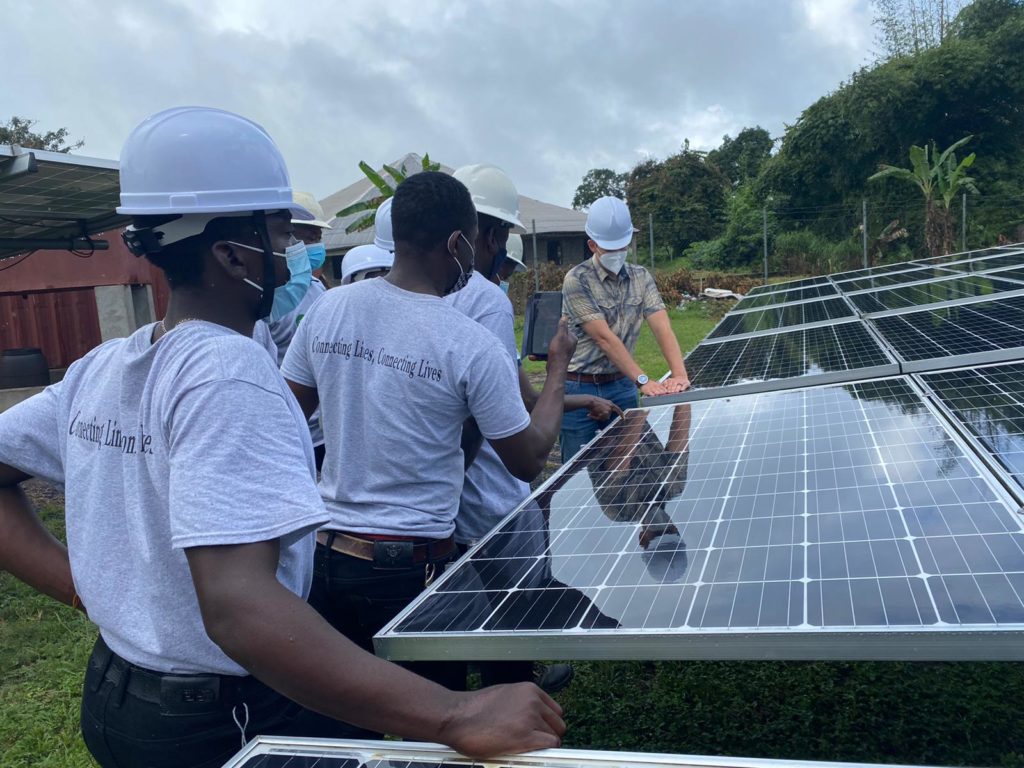At the very top of the Totota Electric Cooperative’s (TEC) customer information dashboard is Joanna Kollie’s name. When she switched her business from using diesel generators to electric service from the new cooperative, she quickly became the largest electricity user among the co-op’s 400 members. This move allowed her to reduce her costs and help her neighbors.
“It has improved my business in so many ways,” she says. “My business has so many impacts on the community … We help people and support them, so they can move up too, so they can grow.”

TEC began providing electricity in 2018, built from about $700,000 in contributions and volunteer work from U.S. co-ops and technical direction from NRECA International.

Meet the first recipients of a loan program managed by the Totota Electric Cooperative and NRECA International.
It has since emerged as a shining example of a successful local utility in Sub-Saharan Africa, recently earning the designation as only the second licensed, independent electric service provider in Liberia. After just three years, the co-op can cover all its operating expenses, and boasts a stellar payment rate of more than 98% from its consumer-members.

TEC has received official visitors in Totota in recent months, who are keen to learn more about the successes. Most recently, representatives from the Government of Liberia met with the TEC leaders to recognize the accomplishments. The delegation included Samuel D. Tweah, the Minister of Finance, Development and Planning.
During the visit, Tweah revealed that the Government of Liberia has created a solar energy budget line in their 2021/2022 budget to support the electrification of remote and rural communities in the country. During the tour of TEC, he described this utility as a “pioneering innovation that the government will use to replicate in other cities and towns in Liberia.”
“This visit recognized that this little cooperative demonstrates how rural electrification can be accomplished in rural Liberia without operational subsidies – and with a high level of service reliability by the communities that remote power systems serve,” said Dan Waddle, NRECA International senior vice president. “One might be tempted to think this is an anomaly – if we hadn’t seen the same situation unfold many times in Bangladesh, the Philippines, Costa Rica, Bolivia and many other places.”
“The reason why people join the cooperative is because light is life. Light brings success,” says Joseph Scott, the co-op’s board president and a small-business owner. “Because of light in Totota today … we have success in the community.”
The availability of power after dark has allowed businesses to stay open later, increasing revenues and providing more service to customers.
“Now we stay out late,” says Henry Williams, who owns a small grocery store in Totota. “When we didn’t have electricity, by 6, 7 or 8 at night, people would go home. But, because of electricity, people are still out here until 1 or 2 a.m.”
TEC runs on a solar-powered minigrid system. In August this year, NRECA International sent a team to help retrofit and upgrade the system. The power system was expanded to increase its battery capacity and storing more solar energy to reduce diesel fuel consumption. This resulted in a more resilient system and lower costs for members, and access to electricity 24 hours a day, 7 days a week.
But ultimately, the co-op’s success comes down to the people of Totota.

“This community and the people in Totota are passionate about their electric cooperative, and they are keenly interested in becoming better stewards of the resources they have,” said Frank Bergh, NRECA International senior engineer, and team lead during this effort in Totota. “TEC and the community have a thirst for knowledge for not just keeping this system operational, but also to keep improving their infrastructure, and advocating to expand electricity access to their neighbors.”
“It does take dedication and some vision on the part of the community itself to know that it’s possible,” says NRECA International vice president Dan Waddle. “And it takes real leadership. In this community, the co-op has been fortunate to have leaders who have been fair-minded and dedicated and worked in the best interest of their membership.”
For Kollie, the co-op is fueling her hopes for the future.
“My hope is to see the community grow,” she says. “We hope that the electricity will be expanded to all the communities, so that our brothers there can also benefit and can also be happy about it, like we are enjoying it, like we are benefiting from it. That’s my wish.”
RE Magazine featured TEC and the Totota community in this November 2021 cover story.